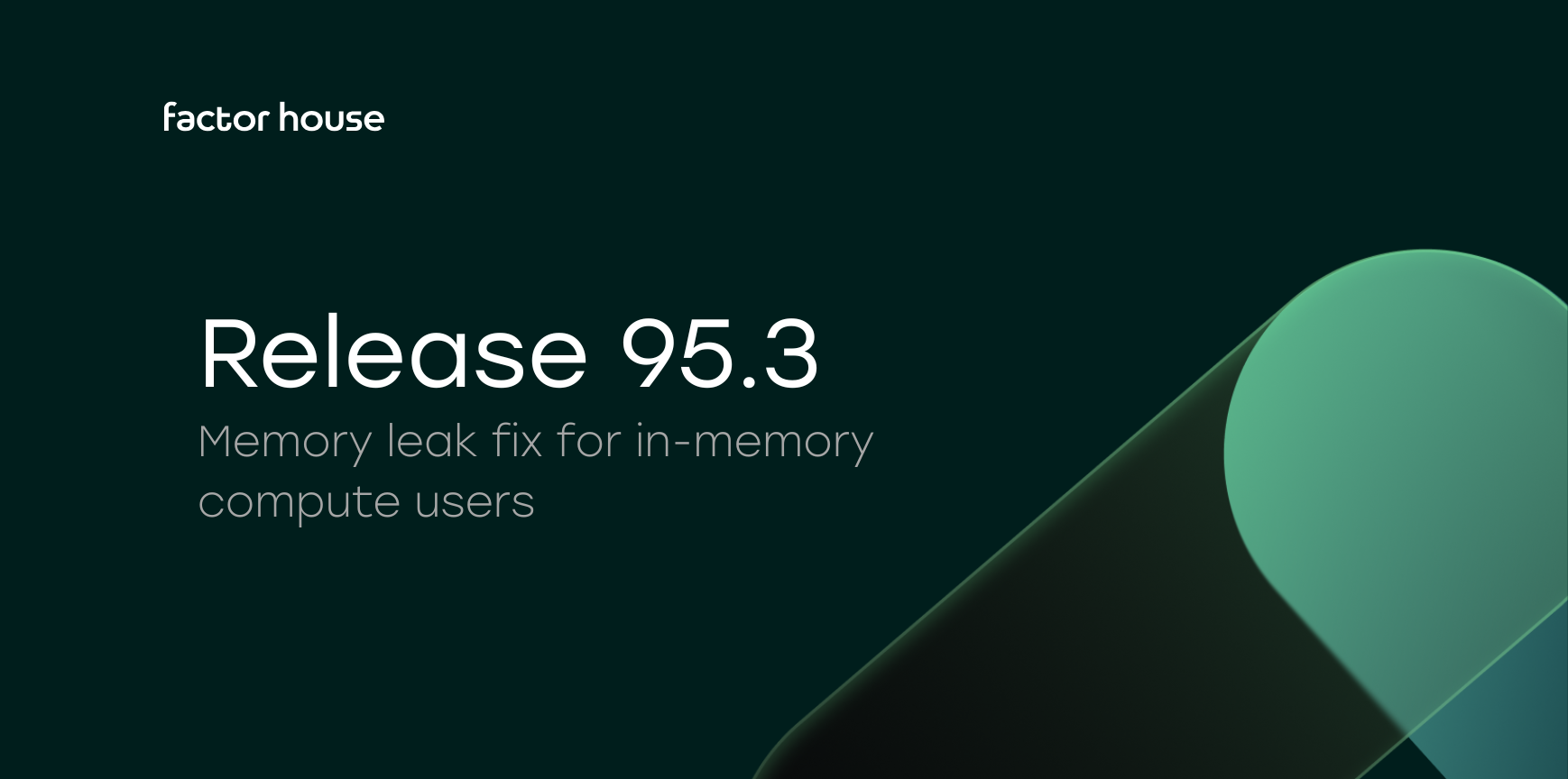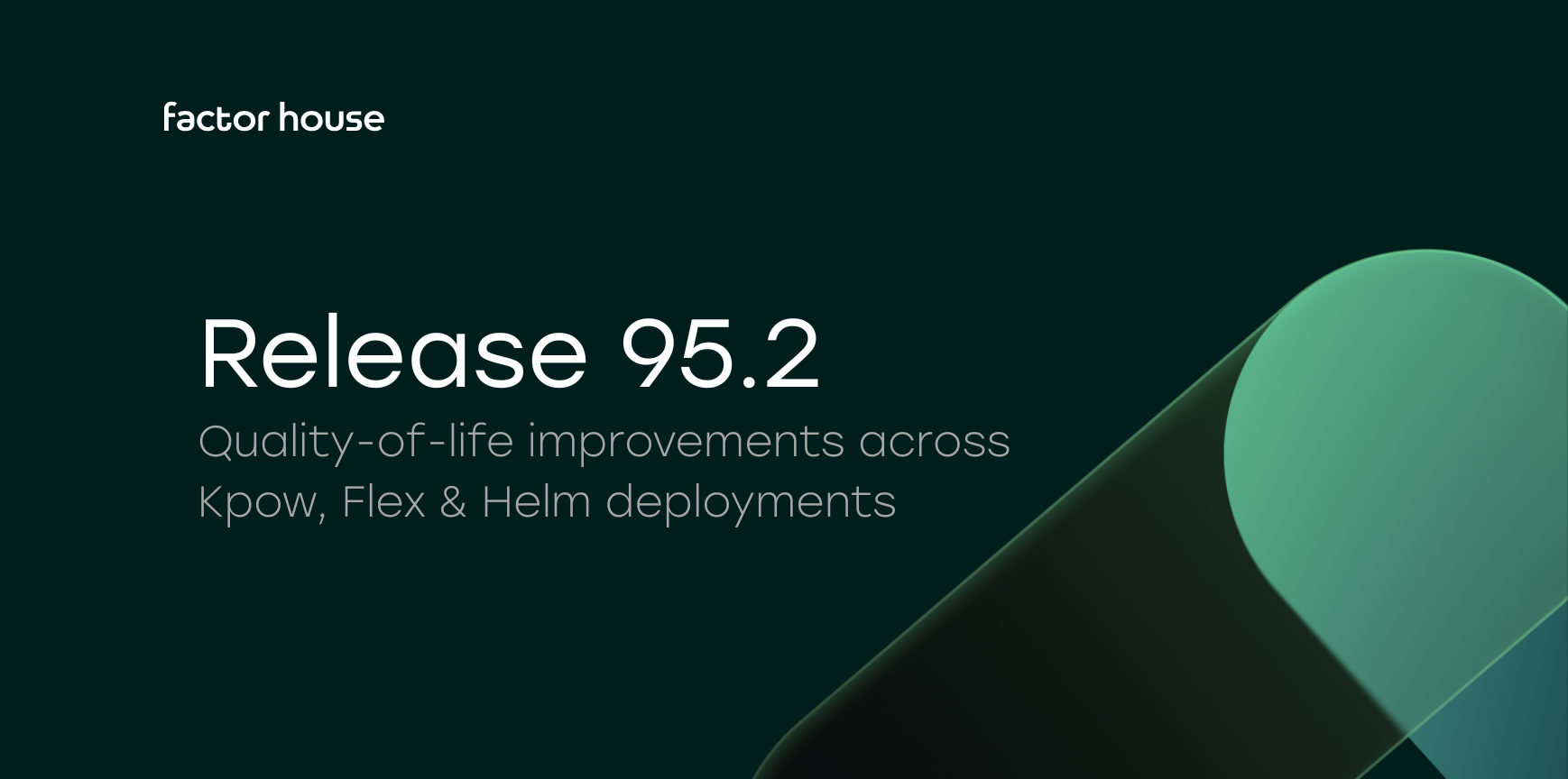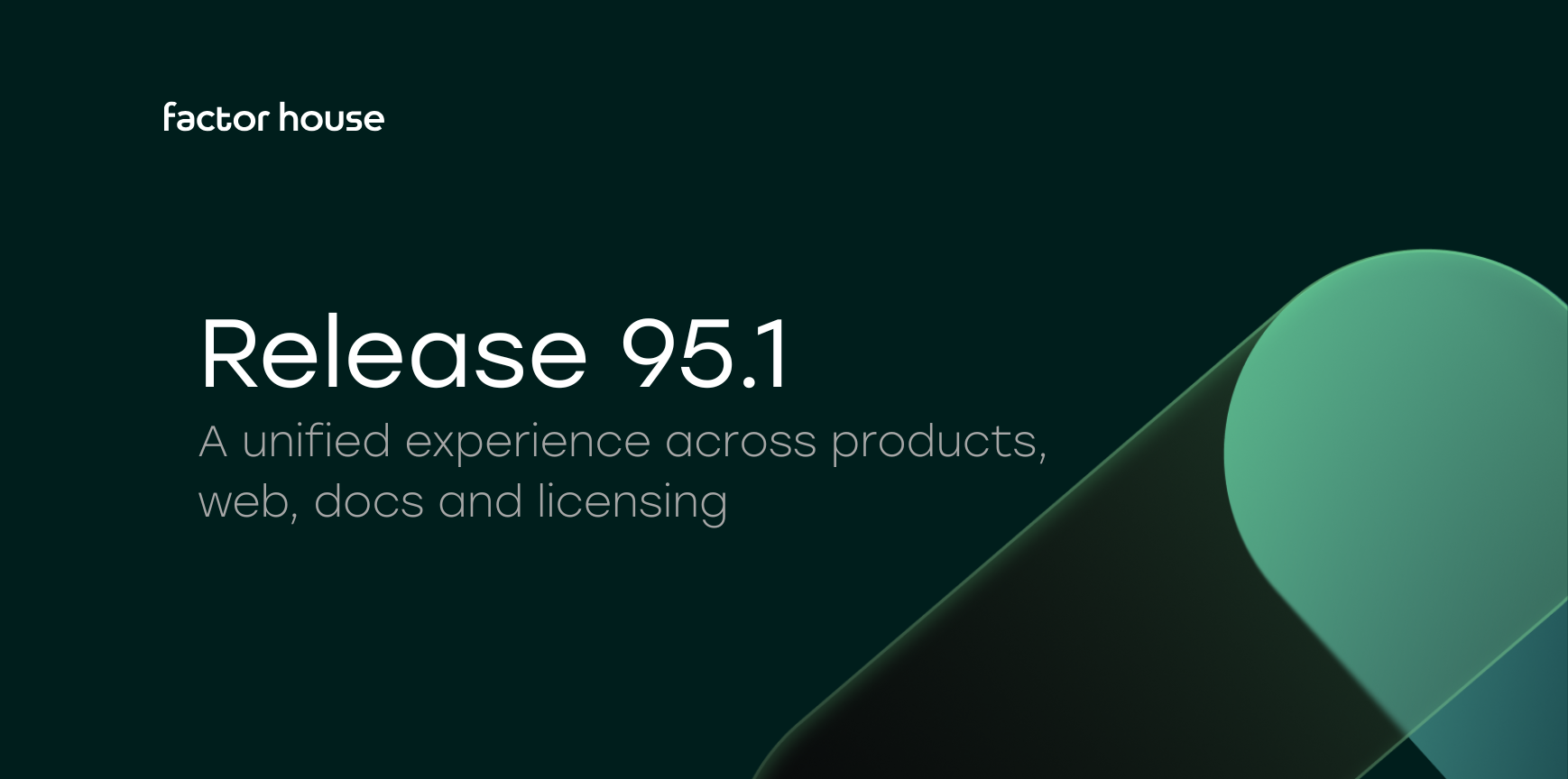
Release 93.1: Kpow OpenAPI 3.1 Kafka API

Release Info
Kpow can be found on Dockerhub
docker pull factorhouse/kpow-ee:93.1View our Docker quick start guide for help getting started.
Kpow can be found on ArtifactHub
Helm version: 1.0.55
helm repo add kpow https://charts.kpow.io
helm repo update
helm install --namespace factorhouse --create-namespace my-kpow kpow/kpow --version 1.0.55 \
--set env.LICENSE_ID="00000000-0000-0000-0000-000000000001" \
--set env.LICENSE_CODE="KPOW_CREDIT" \
--set env.LICENSEE="Your Corp\, Inc." \
--set env.LICENSE_EXPIRY="2024-01-01" \
--set env.LICENSE_SIGNATURE="638......A51" \
--set env.BOOTSTRAP="127.0.0.1:9092\,127.0.0.1:9093\,127.0.0.1:9094" \
--set env.SECURITY_PROTOCOL="SASL_PLAINTEXT" \
--set env.SASL_MECHANISM="PLAIN" \
--set env.SASL_JAAS_CONFIG="org.apache.kafka.common.security.plain.PlainLoginModule required username=\"user\" password=\"secret\";"
--set env.LICENSE_CREDITS="7"View our Helm instructions for help getting started.
Kpow can be found on the AWS Marketplace
View our AWS Marketplace documentation for help getting started.
Kpow can be downloaded and installed as a Java JAR file. This JAR is compatible with Java versions 11+.
View our JAR quick start guide for help getting started.
Kpow can be downloaded and installed as a Java JAR file. This JAR is compatible with Java 8.
View our JAR quick start guide for help getting started.
For more information, read the Kpow accessibility documentation.
Factor House release v93.1 brings a new major version to our suite of products for Apache Kafka and Apache Flink.
This is the 116th release of Factor House products, and marks more than 2.3M downloads of Kpow and Flex from Dockerhub in the past five years.
The major new feature in v93.1 is the secure, vendor-agnostic, OpenAPI 3.1 REST API for Kafka, Connect, and Schema resources that is now available in Kpow.
This release also includes:
- New capabilities for restricting visibility of menu items in our product UI
- Better control of user access to resources with new fine-grained RBAC permissions
- Support for cross-account (STSAssumeRole) authentication for MSK Managed Connect
- Fix for a Confluent Cloud cluster performance related bug
OpenAPI 3.1 Rest API for Apache Kafka
Kpow already provides a secure, acceessible, enterprise-grade Web UI covering the entire surface area of Apache Kafka, Kafka Connect, Schema Registry, and ksqlDB.
With release v93.1, you can now integrate the full power of Kpow's capabilities with your own internal products and/or CI/CD GitOps pipelines by using Kpow's secure REST API.
Getting started is easy, just add the following configuration to your Kpow deployment:
API_ENABLED="true"API_PORT="4000"
After a restart, you can begin accessing the API on the configured port:
curl -v kpow-staging.zcorp.com:4000/kafka/v1/clusters* Trying 127.0.0.1:4000...* Connected to kpow-staging.zcorp.com (127.0.0.1) port 4000 (#0)> GET /kafka/v1/clusters HTTP/1.1> Host: kpow-staging.zcorp.com:4000> User-Agent: curl/7.79.1> Accept: */*>< HTTP/1.1 200 OK< Content-Type: application/json;charset=utf-8< Vary: Accept-Encoding, User-Agent< Content-Length: 139<* Connection #0 to host localhost left intact{"clusters":[{"id":"0TEeq2akSkGlrow1awdj_w","label":"Trade Book (Staging)","is_confluent":false}],"metadata":{"tenant_id":"__kpow_global"}
Kpow's new API is secured via the RBAC and Tenancy rules that govern access to the web UI.
View the full OpenAPI 3.1 Kpow REST API specification to learn more about securing the API and the provided modules and capabilities.
Future releases will include full control of ksqlDB resources, access to Kpow's world-class topic search and message production functions, a full OpenAPI 3.1 API for Apache Flink, and introduce support for mTLS and OpenID authentication of API users. Watch this space!
Fine-Grained RBAC Permissions
Kpow now provides greater control of user permissions with derived, fine-grained user actions:
SCHEMA_EDIT
Permission to edit and delete schema is governed by the SCHEMA_EDIT action.
You can now choose to assign either SCHEMA_EDIT_VERSION or SCHEMA_DELETE individually.
CONNECT_EDIT
Permission to edit, delete, and alter connectors is governed by the CONNECT_EDIT action.
You can now choose to assign either of CONNECT_EDIT_CONFIG, CONNECT_DELETE, or CONNECT_ALTER_STATE individually.
TOPIC_INSPECT
Permission to search for data on topics and download any applicable results is governed by the TOPIC_INSPECT action.
You can now choose to assign either TOPIC_DATA_QUERY or TOPIC_DATA_DOWNLOAD individually.
For more information see Kpow's authorization documentation.
Product Presentation Mode
Factor House products now offer the ability to restrict UI menu options where a user does not have visibility of a resource.
For example, the following configuration will hide the connect, schema, and ksqldb main navigation options when a user does not have access to that type of resource:
PRESENTATION_MODE=HIDE_RESOURCES
Presentation mode can be set at a global level, with the configuration described above, or at a user-tenant level.
Learn more about specifying the presentation mode for a tenant in Kpow's tenancy documentation.
MSK Cross-Account Authentication
Kpow now provides the ability to provide either static credentials or specify cross-account access (STSAssumeRole) when authenticating MSK Connect.
See Kpow's MSK Connect configuration documentation for more.
Confluent Cloud Observation Performance
We recently discovered a bug in Confluent Cloud that caused Kpow's observation of new clusters (presumably ones that use the Kraft protocol) to take longer than desired.
This bug has been resolved in Kpow v93.1.
Release v93.1 Changelog
See the Factor House Product Roadmap to understand current delivery priorities.
Kpow v93.1 Changelog
See the full Kpow Changelog for information on previous releases
- Introduce secure OpenAPI 3.1 API for Kafka, Connect, and Schema management
- Introduce new PRESENTATION_MODE configuration to control UI visibility
- Improve RBAC granularity with new fine-grained permissions
- Improve MSK Connect configurability with new authentication methods
- Fix Confluent Cloud observation performance bug
Flex v93.1 Changelog
See the full Flex Changelog for information on previous releases
- Introduce new PRESENTATION_MODE configuration to control UI visibility

Release 95.3: Memory leak fix for in-memory compute users
95.3 fixes a memory leak in our in-memory compute implementation, reported by our customers.

Release 95.2: quality-of-life improvements across Kpow, Flex & Helm deployments
95.2 focuses on refinement and operability, with improvements across the UI, consumer group workflows, and deployment configuration. Alongside bug fixes and usability improvements, this release adds new Helm options for configuring the API and controlling service account credential automounting.

Release 95.1: A unified experience across product, web, docs and licensing
95.1 delivers a cohesive experience across Factor House products, licensing, and brand. This release introduces our new license portal, refreshed company-wide branding, a unified Community License for Kpow and Flex, and a series of performance, accessibility, and schema-related improvements.
Start your streaming transformation today.
Try both Kpow or Flex free for 30 days with a single license - no credit card required.
